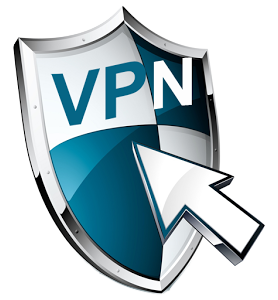What is VPN, how does VPN work, and why you should use VPN?

Facebook and Instagram blocked in Vietnam
May 19, 2016
Types of VPN and types of VPN Protocols
May 28, 2016What is VPN, how does VPN work, and why you should use VPN?
This blog will help users understand: ‘What is VPN?‘, ‘How does VPN work?‘, and ‘Why should you use VPN?‘.
What is VPN?
VPN or Virtual Private Network is a network technology that creates a secure network connection over a public network like Internet. The computers and devices connected to the VPN allows them to transfer the data securely through the encrypted tunnels created by the VPN. All the network traffic is sent over a secure connection to the VPN, keeping the data and information safe and secure. Much like a firewall that protects the data on your computer, VPNs protect your data over the Internet.
How does VPN work?
Connecting to a Virtual Private Network is usually simple. You need to launch a VPN client on your computer and login using the credentials. The computer then exchanges secure trusted key with the VPN server located in a different country. Upon authentication of the VPN client-server connection, all your Internet communication is encrypted and secure. All your Internet traffic is now routed through the an encrypted tunnel created by the VPN. The users actual IP address is kept hidden and a new IP address is granted which allows the user to hide the physical location and bypass the content filters.
Click here to check out VPN One Click
Why should you use VPN?
Below are the three main reasons that make VPN (Virtual Private Network) extremely popular among the people:
1. VPNs allow you to connect remote networks securely
Most business use Virtual Private Network to allow their employees to access their company’s private network securely while being physically away from the company premises. The employees could be traveling around the world and still connect to the secure private network of their company to access files, applications, and other resources on the office network. Business also share servers and other such network resources among multiple their office locations all around the world. Using VPN, the company resources are not directly exposed to the Internet and therefore increases the security.
People can also use a Virtual Private Network to access their home network while traveling which allows them access files and videos and games on their home network while being connected remotely.
2. VPNs keep you secure and private on public networks
VPNs enable a user to be secure on a public network. If a user is connected on a public WiFi or an untrusted network (such as in a hotel, coffee shop, other public places, etc.), the browsing activity of the user on non-https websites could easily be snooped upon.
Users who are concerned about their online privacy use an encrypted VPN connection to connect to the Internet and browse through the Internet more securely and privately because the VPN encrypts your Internet traffic. All the other traffic will travel through the encrypted tunnel created by the VPN. It protects you from the prying eyes of hackers and snoopers who want to capture your passwords and personal information.
3. VPNs allow you to bypass regional restrictions and blocked websites
Some countries keep restrictions on certain websites and block these websites from being accessed by people living in that country. This is called as Geo-blocking of the websites. VPNs have a work around for this too and is more popular for enabling users to access websites which are otherwise blocked in their region or country.
Journalists, bloggers and political dissidents usually use a Virtual Private Network to bypass the Internet censorship in their country and freely access the Internet. Most Chinese people use VPN to gain access the entire Internet by bypassing the ‘Great Firewall of China’.
Majority of the people use Virtual Private Networks for recreational purposes such as watching movies and videos on websites like Netflix, BBC iPlayer, Pandora, Hulu, etc. by connecting to a server located in a country where these region-restricted websites are easily accessible. The VPN routes the Internet traffic to a VPN server located in a different country thus bypassing the regional restrictions and Geo-blocking of the websites.
Download VPN One Click to access blocked websites in your region.
We hope that after reading this blog, you would be in a position to know What is VPN?, How does VPN work?, and ‘Why should one use VPN?’.



